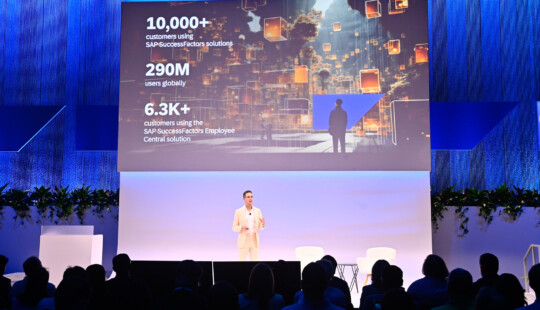Global workers in a recent employee experience (EX) survey rated the technology they use every day among the top five most important factors directly impacting their work experience. The other four things, which also rose in importance, were flexibility, safety at work/travel safety, work-life balance, and benefits.
Commissioned by SAP SuccessFactors, Qualtrics, and EY, the survey from Forrester Consulting collected global feedback from about 900 full-time employees.
Managing the Hybrid Work Experience
While the pandemic continues to be a bumpy ride for many organizations, changing workforce conditions are making EX more important than ever in the new normal.
“Many industries are experiencing unexpected commercial demand and opportunity,” said Marc Havercroft, global chief customer officer at SAP SuccessFactors. “They’re struggling with talent shortages as some economies begin to rise, while others face setbacks. Organizations have to manage hybrid work models, connecting employees with their managers as well as teams company-wide.”
Digitalization has surged during the past year and will only become more prevalent, supporting productivity and job satisfaction for people whether they stay remote, opt for partial in-person work, or need to be onsite given the nature of their responsibilities. Havercroft said that SAP SuccessFactors customers have relied on the cloud-based SAP SuccessFactors Human Experience Management (HXM) Suite to help build a strong EX throughout recruitment, onboarding, and performance management.
“Our global, multi-language platform was instrumental in helping organizations know what employees have been going through to provide a supportive EX from the pandemic’s early stages through this unpredictable recovery and beyond,” he said. “Companies of all sizes are virtually bringing people on board, using the tools to make introductions, get them productive quickly, and provide what they need to excel.”
Indeed, surveyed employees in the Forrester research were encouraged by management and senior leadership to adopt digital tools that promote collaboration, mobility, and remote work. However, 40% of employees found their technology difficult to use, and over half said that it lacked important features. For example, three-quarters reported that the applications and data they needed were not always accessible on desktop and mobile devices. Closing gaps like these will be an important part of effective EX moving forward.
Technology Strengthens Human Bonds at Work
Reliance on technology doesn’t negate the human factor. One of the most surprising results of this pandemic year was how digitalization brought people together.
“Technology takes on the administrative tasks, giving people more time to connect as human beings, especially between managers and their direct reports. That relationship is paramount to someone’s work experience,” said Havercroft. “Companies can capture work-related data using the technology, so people can do what they do best – empathetically listening to solve problems and making more valuable contributions by applying their creativity and knowledge. We’re seeing this happen across every geography and industry.”
How to Close the EX Gap
The same survey findings revealed numerous gaps between a company’s EX aspirations and the reality employees faced. For example, almost 80% of HR leaders predicted that EX will be one of the most important factors in meeting business objectives. However, a paltry 9% of respondents said employee needs were the number one consideration when setting EX strategies, and less than a third of HR managers said it made the top three priorities. Technology can help close the gap between earlier workforce norms and changing employee expectations.
“We’ve had EX technology for a while, but Industrial Age societal constructs haven’t completely caught up to the reality of hybrid work,” said Havercroft. “The pandemic turbo-charged this humankind evolution, forcing companies to use the technology more fully to actually enhance our core human capabilities.”
EX Has Direct Impact on Customer Experience
One of the major learnings for businesses worldwide has been that employees are their core asset and should be treated accordingly. There’s valid argument for changes that will improve EX and cascade to a better CX.
“Look at those moments that matter for your employees and give them the ability to do their job well so they can deliver a fantastic customer experience,” said Havercroft. “The magic of business is when you bring people together, fostering their ability to develop ideas, innovate, fail fast, and learn so they can create more new value for customers.”
In a brand-driven marketplace, it’s worth remembering that employees are customers too. The best organizations don’t hire great people and tell them what to do. They create a great EX that allows people to make their greatest contribution.
Follow me: @smgaler
This story originally appeared on SAP BrandVoice on Forbes.



